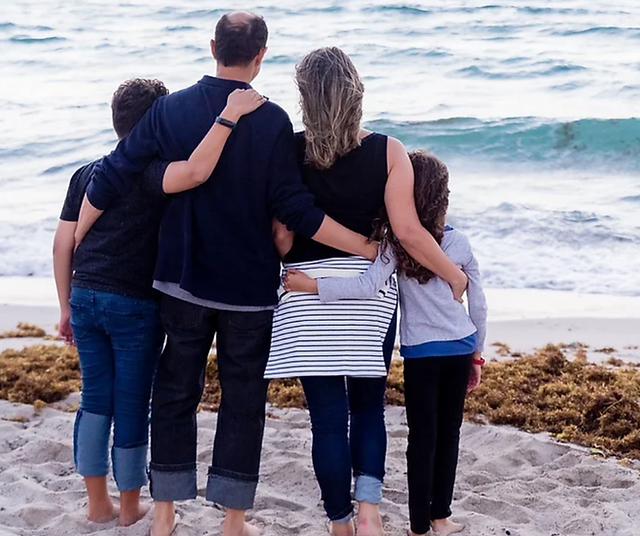Why Is Co-Parenting During Holidays Post-Divorce Challenging?
Managing co-parenting during holidays post-divorce is tough due to conflicting traditions, custody schedules, and emotional strains on kids. You must communicate openly, compromise, and prioritize your children’s well-being. Establish clear boundaries, roles, and embrace new traditions to find common ground. Embrace flexibility, honesty, and understanding to handle the challenges harmoniously. The key lies in putting your children’s happiness first and fostering a positive atmosphere despite the difficulties.
Key Takeaways
- Conflicting holiday traditions due to cultural or religious differences.
- Custody schedules require flexibility and compromises.
- Emotional strain on children from changing family dynamics.
- Balancing family expectations and maintaining harmony.
- Communication breakdowns can lead to misunderstandings.
Conflicting Holiday Traditions

When managing conflicting holiday traditions post-divorce, it’s important to approach the situation with open communication and a willingness to compromise. It’s common to face challenges due to cultural differences, religious beliefs, scheduling conflicts, and personal preferences.
You may find that you and your ex-partner have varying traditions rooted in your cultural backgrounds or religious beliefs. Acknowledge the importance of these traditions to both of you and seek common ground where possible.
Scheduling conflicts can also arise when trying to accommodate different holiday plans. Be understanding of each other’s commitments and be flexible when creating a holiday schedule that works for both parties. Remember that compromise is key in finding a solution that honors both sides.
Respecting each other’s personal preferences is crucial during this time. Be mindful of each other’s feelings and be open to making adjustments to ensure that both you and your ex-partner can celebrate the holidays in a way that’s meaningful to you.
Managing Custody Schedules

Managing custody schedules can be a challenging aspect of co-parenting post-divorce, requiring clear communication and flexibility from both parties. Custody compromises are often necessary to accommodate holiday stress and guarantee a harmonious experience for all involved.
Scheduling struggles may arise when trying to balance traditions, family gatherings, and personal preferences. It’s vital for parental cooperation to take center stage during these times, putting the children’s well-being and stability at the forefront.
To navigate these challenges successfully, consider creating a detailed custody schedule well in advance, clearly outlining where the children will be during each holiday and how handovers will occur. Flexibility is key, as unexpected events or last-minute changes aren’t uncommon during the holiday season.
Keep an open line of communication with your co-parent to address any concerns or modifications promptly.
Emotional Strain on Children

Managing the emotional strain on children during post-divorce holiday co-parenting requires a sensitive approach that prioritizes their well-being and emotional stability. Child custody arrangements can often add complexity to holiday plans, leaving children feeling torn between two households. It’s essential to remember that children may experience a range of emotions during this time, including sadness, confusion, and even guilt.
To support your children through this emotional turmoil, maintain open communication with them. Encourage them to express their feelings and validate their emotions. Reassure them that it’s okay to feel upset or overwhelmed. Emphasize that both parents love them dearly and that the custody schedule is in place to ensure they’ve meaningful time with each parent.
Prioritizing your children’s emotional well-being over any conflicts with your ex-spouse is vital. Create a supportive environment that fosters stability and security. Engage in activities that bring joy and create new holiday traditions to help your children adjust to the changes.
Balancing Family Expectations

Finding a balance between your family’s expectations during post-divorce holiday co-parenting can be challenging yet essential for creating a harmonious atmosphere for your children.
Setting clear parental boundaries is essential in managing these expectations. Clearly define roles and responsibilities to avoid confusion and promote a smoother holiday experience for everyone involved.
Compromise and flexibility are key in maneuvering this delicate situation. Acknowledge that both you and your ex-partner may have different traditions or ways of celebrating, and be open to finding common ground.
Communication Breakdowns
Managing communication breakdowns can be a common challenge when co-parenting during the holidays post-divorce, impacting the overall experience for both parents and children. Trust issues can often arise, making it difficult to effectively communicate and coordinate holiday plans. When trust is lacking, misinterpretations and misunderstandings can easily occur, leading to unnecessary tension and conflict.
Additionally, scheduling conflicts can exacerbate communication breakdowns. With busy holiday schedules and multiple commitments, it can be challenging to find a time to discuss important matters regarding the children. This can result in important information being missed or decisions being made without proper communication and agreement from both co-parents.
To navigate these communication challenges, it’s essential to prioritize open and honest dialogue. Building trust through consistent and transparent communication can help alleviate misunderstandings and foster a more cooperative co-parenting relationship.
Establishing clear communication channels and setting aside dedicated time to discuss holiday plans can also help mitigate scheduling conflicts and make sure that both parents are on the same page. Remember, effective communication is key to successful co-parenting during the holidays.
Frequently Asked Questions
How Can Co-Parents Handle Last-Minute Changes to Holiday Plans?
When last-minute changes arise in holiday plans, remember to communicate openly with your co-parent. Flexibility is key, as is being willing to compromise and coordinate effectively. By working together, you can navigate these challenges with understanding and respect.
What Strategies Can Co-Parents Use to Involve Children in Decision-Making?
To involve children in decision-making, consider their perspective and create shared experiences. Encourage open communication, listen to their feelings, and involve them in age-appropriate choices. By valuing their input, you foster a sense of inclusion and understanding.
Are There Resources Available to Help Co-Parents Navigate Holiday Challenges?
You can find helpful resources to navigate holiday challenges. Online support groups offer coping strategies and communication tips. Engage in conflict resolution techniques to guarantee smooth co-parenting during special occasions. Remember, you’re not alone in this journey.
How Can Co-Parents Support Each Other During Emotionally Charged Holidays?
Support each other during emotionally charged holidays by offering emotional support and open communication. Practice coping strategies together, showing empathy for each other’s feelings. Remember, you’re in this together, and your mutual support is crucial.
What Steps Can Co-Parents Take to Establish New Holiday Traditions Post-Divorce?
You and your co-parent can establish new holiday traditions post-divorce through collaborative planning. Set boundaries respectfully. Create new family traditions that bring joy and unity, focusing on making special memories with your children.
Conclusion
Managing co-parenting during the holidays post-divorce can be tough. Conflicting traditions, custody schedules, and family expectations all add to the challenge.
Remember to communicate openly with your co-parent, prioritize your children’s well-being, and be flexible with your plans. It’s a difficult time, but with patience and understanding, you can create new holiday traditions that work for everyone involved.
Stay strong and know that you’re not alone in this journey.

Chad Adan Kace, a young dad from Vermont, shares his parenting journey with a touch of humor and lots of love. Father to a lively baby, he explores the joys and challenges of fatherhood through his stories.







